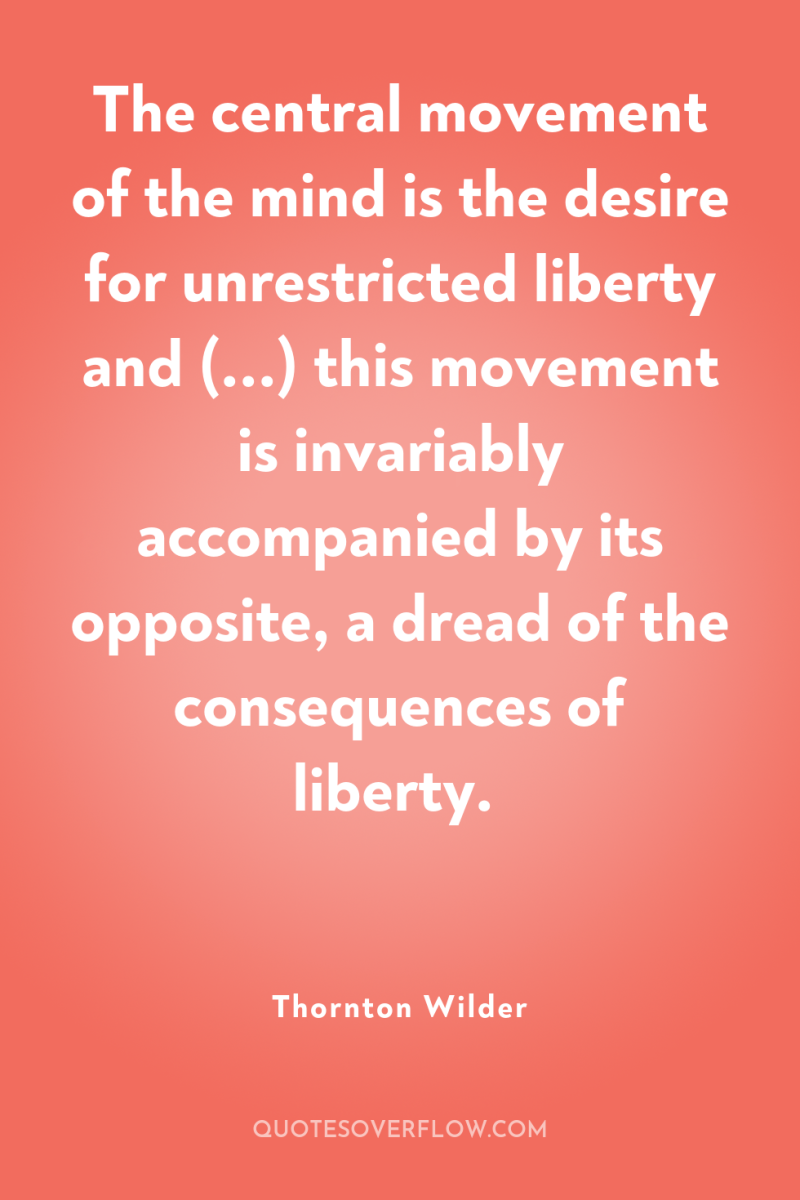1
There is not a single untruth, no -but after ten lines Truth shrieks, she runs distraught and disheveled through her temple's corridors; she does not know herself. 'I can endure lies, ' she cries. 'I cannot survive this stifling verisimilitudeThornton Wilder
2
The type of the Inevitable is death. I remember well that in my youth I believed that I was certainly exempt from its operation. First when my daughter died, next when you were wounded, I knew that I was mortal; and now I regard those years as wasted, as unproductive, in which I was not aware that my death was certain, nay, momently possible. I can now appraise at a glance those who have not yet foreseen their death. I know them for the children they are. They think that by evading its contemplation they are enhancing the savor of life. The reverse is true: only those who have grasped their non-being are capable of praising the sunlight. .Thornton Wilder
3
Let us at least say of religion that it means that every part of the body is infused with mind, not that the mind is overwhelmed and drowned in body. For the principal attribute of the Gods, without or within us, is mind.Thornton Wilder
4
Love as education is one of the great powers of the world, but it hangs in a delicate suspension; it achieves its harmony as seldom as does love by the senses. Frustrated, it creates even greater havoc, for like all love it is a madness.Thornton Wilder

5
The central movement of the mind is the desire for unrestricted liberty and (...) this movement is invariably accompanied by its opposite, a dread of the consequences of liberty.Thornton Wilder
6
Leadership is for those who love the public good and are endowed and trained to administer it.Thornton Wilder
7
The condition of leadership adds new degrees of solitariness to the basic solitude of mankind. Every order that we issue increases the extent to which we are alone, and every show of deference which is extended to us separates us from our fellows.Thornton Wilder
8
The first and last schoolmaster of life is living and committing oneself unreservedly and dangerously to living; to men who know this an Aristotle and a Plato have much to say; but those who have imposed cautions on themselves and petrified themselves in a system of ideas, them the masters themselves will lead into errorThornton Wilder
9
Cesar is not a philosophical man. His life has been one long flight from reflection. At least he is clever enough not to expose the poverty of his general ideas; he never permits the conversation to move toward philosophical principles. Men of his type so dread all deliberation that they glory in the practice of the instantaneous decision. They think they are saving themselves from irresolution; in reality they are sparing themselves the contemplation of all the consequences of their acts. Moreover, in this way they can rejoice in the illusion of never having made a mistake; for act follows so swiftly on act that it is impossible to reconstruct the past and say that an alternative decision would have been better. They can pretend that every act was forced on them under emergency and that every decision was mothered by necessity.Thornton Wilder
10
I have inherited this burden of superstition and nonsense. I govern innumerable men but must acknowledge that I am governed by birds and thunderclapsThornton Wilder
11
It is only dogs that never bite their masters.Thornton Wilder
12
The mind of Caesar. It is the reverse of most men's. It rejoices in committing itself. To us arrive each day a score of challenges; we must say yes or no to decisions that will set off chains of consequences. Some of us deliberate; some of us refuse the decision, which is itself a decision; some of us leap giddily into the decision, setting our jaws and closing our eyes, which is the sort of decision of despair. Caesar embraces decision. It is as though he felt his mind to be operating only when it is interlocking itself with significant consequences. Caesar shrinks from no responsibility. He heaps more and more upon his shoulders.Thornton Wilder
13
There is no need for me to curse you -the murderer survives the victim only to learn that it was himself that he longed to be rid of. Hatred is self-hatred.Thornton Wilder
14
You swore you loved me, and laughed and warned me that you would not love me forever. I did not hear you. You were speaking in a language I did not understand. Never, never, I can conceive of a love which is able to foresee its own termination. Love is its own eternity. Love is in every moment of its being: all time. It is the only glimpse we are permitted of what eternity is. So I did not hear you. The words were nonsense.Thornton Wilder